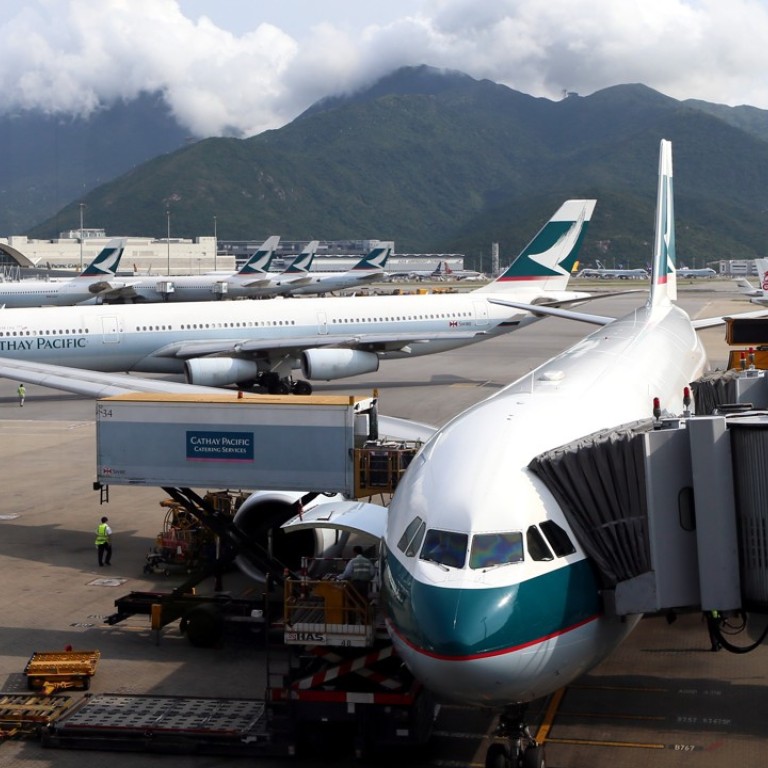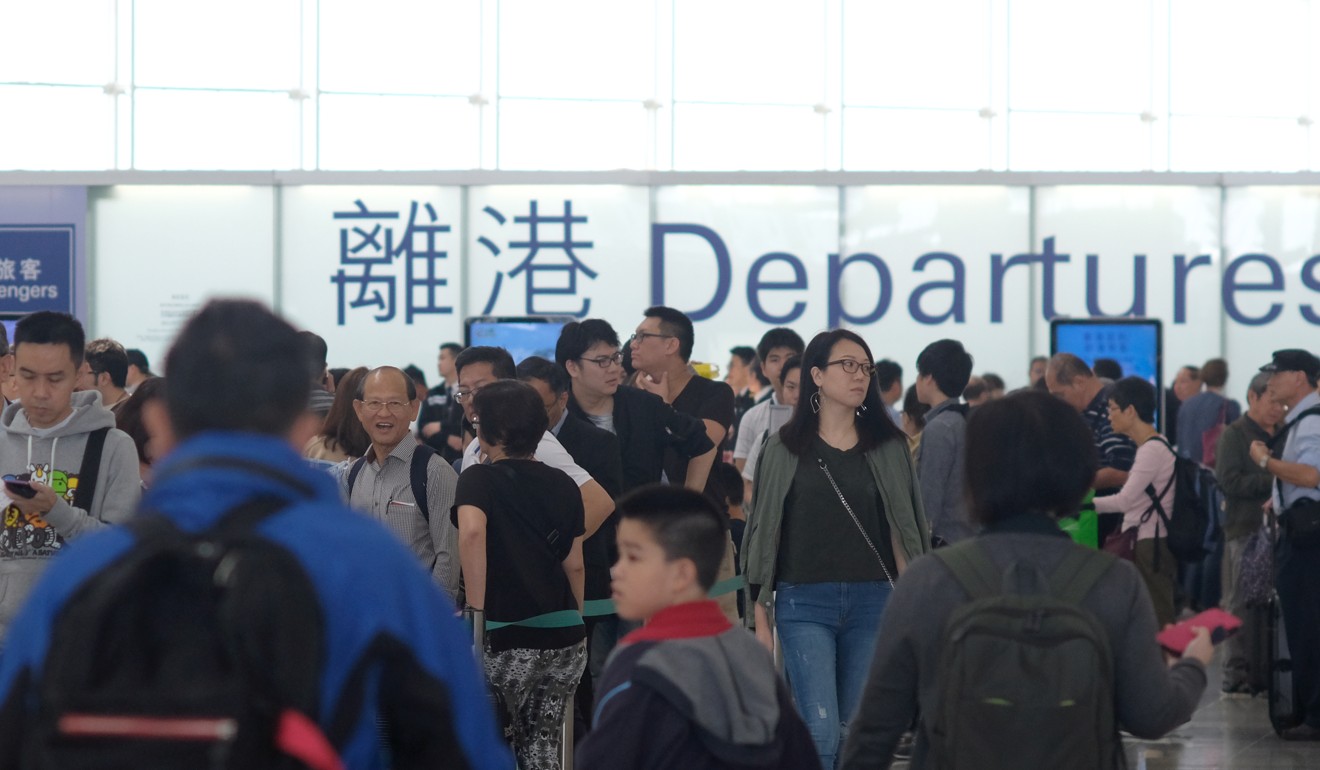
Long-haul flight tickets out of Hong Kong to increase by HK$600 with deregulation of fuel surcharges
Industry is expecting Civil Aviation Department to move on giving airlines more control amid rising oil price
Travellers on long-haul flights out of Hong Kong will have to pay up to HK$600 (US$76) more if oil prices keep rising and the government allows airlines to recoup fuel costs, sources have revealed.
At least four industry sources said they were confident the Civil Aviation Department would deregulate the setting of fuel surcharges in the next few months, giving airlines some wiggle room when oil prices rise.
The department launched a year-long review of its policy on fuel surcharges last March but when approached last week, would only say its new policy was being “finalised”.

“Upon completion of the study, the Civil Aviation Department will consult stakeholders on the proposed way forward with a view to formulating the relevant policy,” a spokeswoman said.
Airlines could previously charge fuel fees on passenger and cargo flights from Hong Kong but in January 2016, the aviation regulator scrapped this as oil prices fell to US$35 a barrel from a peak of US$110.
The price of oil as of last week was US$74 a barrel and the last time oil prices were at that level in November 2014, airlines with flights originating from Hong Kong were allowed to charge an extra HK$623 for a long-haul flight and HK$143 for regional ones.
The Post learned all four airlines based in Hong Kong, including Cathay Pacific Airways, had been lobbying over the past year for the surcharge to be reinstated.
Hong Kong airfares could soar if fuel surcharge proposal approved
A spokeswoman for Cathay Pacific and subsidiary Cathay Dragon would not comment other than stating the airline was keenly awaiting the outcome of the review.
Budget carrier Hong Kong Express only said it “advocates pricing transparency”.
Corrine Png, CEO of transport search group Crucial Perspective, predicted that competition would influence airlines, particularly Cathay Pacific, to pass on half of the fuel price increase to passengers flying out of Hong Kong.
“We expect all the carriers to successfully implement the fuel surcharges,” Png said, adding that airlines might grant more discounts on underlying airfares to retain their market share. About 87 airlines fly in and out of Hong Kong.
Cathay currently adds a fuel surcharge for flights arriving in the city as this is not regulated. Passengers pay HK$116 for regional flights and HK$516 for long-haul flights.
Lawmaker and professional pilot Jeremy Tam Man-ho did not think the reintroduction of a fuel surcharge for outbound flights would harm the city’s competitiveness as a travel hub.
“The fuel surcharge mechanism just has to be more transparent so passengers know exactly what they’re paying for,” Tam said, adding he supported airlines having the power to make their own decisions.
The fuel surcharge mechanism has to be more transparent so passengers won’t be out of pocket
Tam said the surcharge should be directly linked to the cost of oil rather than the current formula used by authorities. The department had on multiple occasions refused to disclose its calculations on price regulations.
In launching its review last March, the department had signalled that deregulation would occur, citing the example of other countries. It said it was searching for the best way to follow similar trends.
Cathay Pacific was caught off guard more than two years ago when the fuel surcharge was suspended. At the time, the airline’s chief financial officer Martin Murray said the company would be “lobbying hard” for the reinstatement of the surcharge.
The city’s biggest airline pays for its jet fuel up to four years in advance to secure a significant portion at a slightly discounted rate from the market price of oil. However, the dramatic collapse in oil prices saw rivals who did not hedge as much profit from lower fuel costs and pass on savings to consumers through cheaper airfares.
FUEL SURCHARGE POLICIES WORLDWIDE
Hong Kong, Japan and Brazil are among the very few jurisdictions in the world that regulate fuel surcharges.
Hong Kong
When oil prices reach a certain level, typically around US$50 a barrel, the city’s civil aviation regulator authorises a surcharge to be added by airlines to a price of a ticket. Airlines submit a figure they think reflects the oil price and the authorities set the final price based on all airline applications. The method of calculation has never been disclosed.
Japan
A transparent system informs airlines and travellers how much extra they would pay for international flights. The fuel surcharge cost for passengers is based on the destination and a fixed price band for oil.
Brazil
Fuel surcharges are prohibited in one of Latin America’s largest countries and economies. This is based on the belief that fuel costs and other carrier-imposed surcharges should be covered in the final airfare price. Fuel surcharges originating from Brazil do not exist. Regulators maintain that the stance is fair and gives more transparency to consumers.
European Union
Any airline operating from inside the European Union is free to add surcharges but should indicate the final ticket price at the start of the booking process, including taxes, airport charges and fees.

